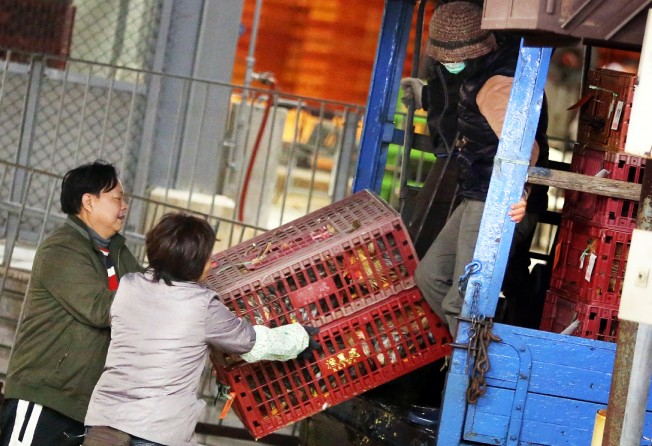Mainland China's delta region grows indifferent to H7N9 at its peril
Across the delta, authorities are making little effort to educate the public

The Pearl River Delta is entering peak bird flu season but the region appears unprepared for a possible outbreak. Wet markets continue to sell live poultry, diners are ordering up plates of raw chicken for hot pot feasts, and some residents say they were surprised to learn there were recent human cases.
Health authorities at the municipal and provincial level are largely to blame for the lack of awareness. Almost no information was released about the first fatality of the season. Officials only said a man died from H7N9 in Meizhou on December 3 - with no word given on where or when he contracted the virus, or whether he had been in contact with live poultry.
Neither was much released about the first case - health authorities posted a two-sentence item online last month saying a 31-year-old woman was confirmed to have the virus and remained in critical condition in hospital. Local media reported she sold live chickens with her husband at a wet market stall in Changping, a town in Dongguan . She developed a fever on November 23 and tests confirmed five days later she had the virus, reports said. She was being treated in Guangzhou.
Dongguan health authorities closed live poultry stalls the next day, but they reopened on December 2.
Two cases is a long way from the seasonal average of about 55. But the delta is just two months into about an eight or nine-month period where the risk is heightened.
During the peak season last year, local media regularly broadcast guidelines informing residents of the risks. As the temperature drops, people are gathering more around hot pot meals. Locals like to have uncooked chicken and vegetables on the table and add them to the boiling soup throughout the dinner.
I have a child in a private kindergarten in Longhua New Zone and have not received any guidelines from the school or government about how to protect my daughter. No notices have been posted in community health centres. In Shenzhen, an English teacher said she wasn't aware of the latest cases. "I had no idea bird flu has occurred this winter," Xu Qiaoyin said. "I think I must have missed the news even though I read the local newspaper every day."
Provincial authorities have flirted with a ban, expanding its scope and then wavering in hesitation after a backlash by some members of the public saying it went too far. In May and July, Guangzhou and Shenzhen became the first cities in the delta to adopt a trial ban on live poultry sales in certain downtown districts. Retailers could only sell chilled meat from approved slaughterhouses.
The ban was expected to cover all districts in Guangzhou by October and include Luohu, Yantian and Nanshan districts in Shenzhen by the end of the year.
But even in the two trial cities, the effectiveness of the ban has been undercut by some vendors changing slaughter and packing dates illegally because few can sell all their chilled stock in time. In September, the provincial government released a plan for public consultation that called for halting live poultry sales in nine key cities, starting from next year.
But after criticism from residents and vendors, officials watered down the proposal last month, saying the ban would cover only most wet markets in the nine cities. Between one and three markets could continue to sell live poultry, according to the Yangcheng Evening News.
"A ban in some markets but let other markets pass? Such a rule is destined to become a joke," said one chicken vendor in Shenzhen's Futian district. "Cantonese people like to eat fresh chickens.
"No one will come to a wet market for chilled poultry," he said. "Illegal hawkers now sell live poultry outside the wet markets and I believe their business will be better next year."